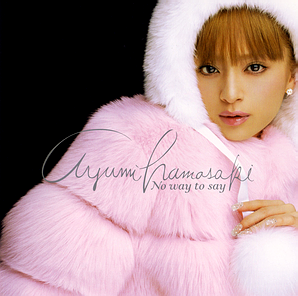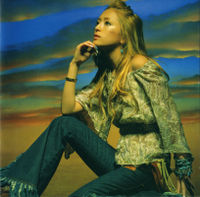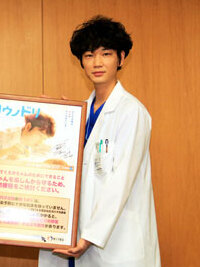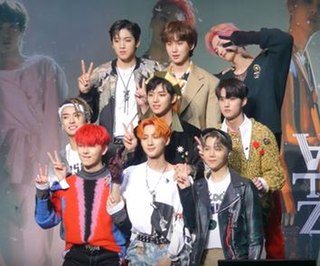
Rainbow is the fifth studio album by Japanese recording artist Ayumi Hamasaki, released on 18 December 2002 by Avex Trax. Production of Rainbow had commenced after the release of Hamasaki's fourth studio album I Am... that January; All lyrics were written by Hamasaki, and Japanese producer Max Matsuura returned to produce the album. The album was Hamasaki's first to feature conversational English lyrics, where in her previous works she had only used single words.

Valenti is the second Japanese studio album by South Korean recording artist BoA, released through Avex Trax on January 29, 2003. The album's lyrics were written by multiple contributors including Natsumi Watanabe and Kenn Kato, with composition on the album handled by a team of composers including Kazuhiro Hara, Bounceback, Kosuke Morimoto, Ken Harada, and Akira. Valenti is a pop record containing influences from R&B and dance music, and is primarily recorded in Japanese with minor interspersed phrases in English.

"No Way to Say" is the thirty-first single released by Ayumi Hamasaki and her eighteenth number-one single. It came out November 6, 2003. The video won the award for "Best Pop Video" at the 2004 MTV Video Music Awards Japan, and the single won the Japan Record Award at the 2003 Japan Record Awards. The song is featured on the mini-album Memorial Address.

"Daybreak" is a song recorded by Japanese recording artist and lyricist Ayumi Hamasaki, released on March 6, 2002 as the eighth and final single on her fourth studio album I am.... Influenced by the recent events off the September 11 attacks in New York City and Washington D.C. in North America, Hamasaki sought a new inspiration for her then-forthcoming album; instead of writing songs about confusion, loneliness and love like her previous efforts, she was encouraged to engage in more peaceful and worldly themes. This resulted in several songs on I Am..., including "Daybreak".

Best: First Things is the debut greatest hits album by Japanese singer Koda Kumi. Rhythm Zone released it in a variety of formats on September 21, 2005. The album is divided into two discs, each containing a single released by Koda between her 2000 debut with "Take Back" and her most recent single, "Hot Stuff" in 2005. The second disc contains four new singles: "Butterfly", "Flower", "Promise", and "Star", as well as a bonus track, the solo version of "The Meaning of Peace".

"Put ‘Em Up" is the 24th single by Japanese singer Namie Amuro. It was released on digital and physical formats by Avex Trax on July 16, 2003, and serves as Amuro's third single from her sixth studio album Style (2003). It was originally written by Jasper Cameron and producer Dallas Austin, but portions of it were rewritten by Japanese songwriter Michico because Amuro felt the demo version was too harsh.

"Shine More" is the 23rd single by Japanese recording artist Namie Amuro. It was released on March 5, 2003, by Avex Trax and serves as the second single from her sixth studio album Style (2003). It was originally written by Scott Nickoley, Sandra Pires and Paul Taylor, while the lyrics were translated into Japanese by H.U.B. Amuro called "Shine More" the first part of a dance number trilogy including "Put 'Em Up" and "So Crazy."

"(We Want) The Same Thing" is a song by American singer Belinda Carlisle. Written by Rick Nowels and Ellen Shipley, it was produced by Nowels for Carlisle's third album, Runaway Horses (1989). In Japan, it was released simultaneously with "Leave a Light On" as the album's lead single on October 21, 1989, while in the United Kingdom, it was issued as the album's fifth single in October 1990. To help promote the single in the UK, Virgin Records released a deluxe 12-inch vinyl box set with free stickers and a picture disc single on CD, in addition to standard formats. The single peaked at number six on the UK Singles Chart and spent 10 weeks in the top 75.

"Valenti" is a song by South Korean singer BoA. It was released for her second Japanese studio album of the same name (2003) on August 28, 2002, serving as her sixth Japanese single under Avex Trax. It features "Realize " as a B-side. A Korean version of "Valenti" was released as part of her compilation album Miracle, which was made available by SM Entertainment on September 24, 2002.

"Free Way" was the second Japanese single taken from the forthcoming debut Eternal Rain, from Korean singer, Rain. The single was released on June 7, 2006 throughout Japan, it peaked at the 15th position on the Oricon Charts. Free Way is often compared to the single, Rock Your Body by American singer Justin Timberlake. Many reasons for this are the music video similarities and the disco/funk melodies featured in the song.

"Jewel Song / Beside You: Boku o Yobu Koe" is BoA's eighth Japanese single. It was on the 2003 top singles sales according to the Oricon with sales of 151,000. It is also her fourth highest selling single. Beside You -Boku wo Yobu Koe- was used as opening theme song for the anime Monkey Typhoon.

Earthsongs is the eighth album by Secret Garden. It was released in 2004 on Decca Records.

Go Ayano is a Japanese actor.
"Can We Go Back" is a song written by Adam Watts, Andy Dodd and Shanna Crooks and recorded by Kelly Clarkson during the sessions for her 2009 album, All I Ever Wanted. It appears in certain countries as an iTunes Store exclusive song on the deluxe version of the album, as well as a bonus track on the Japanese version of the album. It was then later recorded in Japanese by singer Kumi Koda in 2009 with differing lyrics.
"Taiyō ga Mata Kagayaku Toki" is a 1994 song recorded by Japanese singer Hiro Takahashi. The song comes from his second album called Welcome to Popsicle Channel. It reached number 9 on the Japanese charts.

"Sakura" is the 45th single by Japanese boy band Arashi. It was released on February 25, 2015 under their record label J Storm. "Sakura" was used as the theme song for the television drama Ouroborous, starring actors Toma Ikuta and Shun Oguri. The single was released in two editions: a first press/limited edition and a regular edition. The first press/limited edition contains the B-side "Rise and Shine" and the music video and making-of for "Sakura" while the regular edition contains two B-sides. The single sold 465,381 copies in its first week and topped the weekly Oricon Singles Chart. With over 520,000 copies sold, the single was certified Double Platinum by the Recording Industry Association of Japan (RIAJ). The single placed 11th on Oricon's 2015 yearly singles ranking.

Get Up! is female duo Soulhead's first extended play. It was released on July 30, 2003, and contained four new songs. It also received a limited edition "analog version," which had been released two weeks prior on July 16, 2003. The single charted on Oricon at #28 for the daily ranking.

The discography of South Korean boy band Pentagon consists of two studio albums, eighteen extended plays and nineteen singles.

"Over Shine" is a song by Japanese singer-songwriter Rina Aiuchi. It was released on 30 July 2003 through Giza Studio, as the fifth single from her third studio album A.I.R.. The song reached number six in Japan and has sold over 46,206 copies nationwide. The song served as the theme song to the Japanese television shows, Yuji Miyake no Doshiroto and Ax Music-TV. The B-side track, Code Crush, served as the opening theme song to the PlayStation 2 video game, Mega Man X7.
















